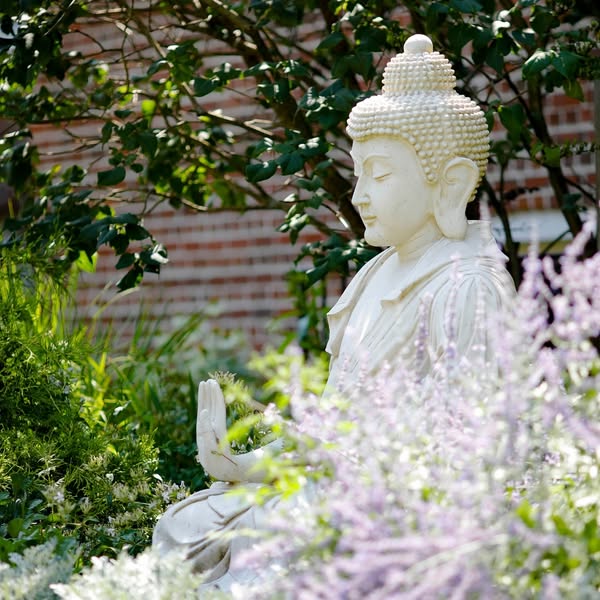Our guest blog this month is an excerpt from Sharon Salzberg’s book The Force of Kindness. Sharon is a meditation pioneer, world-renowned teacher, and New York Times bestselling author. She is among the first to bring mindfulness & lovingkindness meditation to mainstream American culture fifty years ago, inspiring generations of meditation teachers and wellness influencers. A co-founder of The Insight Meditation Society in Barre, MA, Sharon is the author of thirteen books, including the New York Times bestseller, Real Happiness, now in its second edition, and her seminal work, Lovingkindess.
Kindness
Kindness is compassion in action. It is a way of taking the vital human emotions of empathy or sympathy and channeling those emotions into a real-life confrontation with ruthlessness, abandonment, thoughtlessness, loneliness—all the myriad ways, every single day, we find ourselves suffering or witnessing suffering in others.
Yet growing up I had the impression that a kind heart ranked awfully low in cultural desirability, well after a sound head, a sharp wit, invulnerability, power over others, a fine sense of irony, and countless other qualities. The hero I saw displayed in the movies was fiercely resolute; the sidekick, trailing after the hero, picking up the pieces, might have been kind. The overwhelmingly popular girl on TV was striking, imposing, amusing; the second banana was usually kind and a lot less magnetic or interesting.
Today as well, when we think of adventure, going out on a limb, being bold, or being on the edge, it is rarely in the direction of caring, of compassion. Usually, we externalize our sense of adventure and think of climbing mountains or jumping out of airplanes. Our idea of taking a risk is to be more ambitious, maybe more competitive. To be bold translates as being more hard-bitten and not noticing the consequence of our actions on others. To be brave has no gentleness or sensitivity associated with it.
On the face of it, kindness can seem wimpy, a cop-out, an excuse to do just a little bit to try to make a difference when so very much needs to be done. We might see kindness as the rationale for feeling good after speaking nicely to a homeless person we meet on the street, without having to consider basic injustice and what steps have to be taken to help that person and others like him or her to not suffer anymore. We might delegate kindness to the category of a quaint, old-fashioned virtue—not very effective, and certainly not very powerful. We might disdain kindness as a way of promoting separation and a hierarchy of distinctions: “I, who am superior and untouched by your problem, will help you, who are inferior and in a bad way.” We might dismiss kindness as the last, frail stand of righteousness—the lesser state we turn to in some dismay when wisdom, clarity, incisiveness, and intense love all have seemed to fail us and we haven’t been able to make any substantial difference in someone’s life.
From birth, and in fact well before, we are dependent on someone’s kindness. An infant who is being severely deprived of basic emotional sustenance, even though physically well cared for, can fail to thrive and can eventually die. We need affection, nurturing, and attention, not just to embellish our life or to have a somewhat better day, but for our actual survival. And in the absence of receiving this kindness, something in us does die, at least for a while, unless and until it can be restored through love.
Kindness points to the core of what it means to be alive, which is to be connected. When someone looks at us with the concern of kindness, the sense of connection expressed in her or his eyes reflects our own value. When someone treats us with the benevolence of kindness, the sense of connection informing their actions confirms our own right to be happy. And when someone feels connected enough to reach out to us in kindness, we hear the unspoken message of their efforts—that we are worth the bother.
One of the ways kindness affects us is through the development of “self-efficacy,” a contemporary psychological concept that describes a certain kind of faith in ourselves, in our ability to meet difficulties. This quality influences our willingness to take risks, to face new challenges. Albert Bandura, a Stanford psychologist who has done much of the research on self-efficacy, says this: “People’s beliefs about their abilities have a profound effect on those abilities. Ability is not a fixed property… there is huge variability in it; people who have a sense of self-efficacy bounce back from failures; they approach things in terms of how to handle them rather than worrying about what can go wrong.”
This is the difference between pain and hopelessness, between distress and bitterness, between suffering and despair—sorrows or difficulties arise, yet we have some sense of confidence that we can find a way to work through them. What I found compelling about Dr. Bandura’s quotation is the understanding that a person’s belief about his or her ownabilities has such a strong impact. If ability is not a preordained, limited commodity, then our potential to grow, to understand, to love, to connect is significantly nourished by what we believe about ourselves. This is one of the great fruits of the kindness we receive from others—it supports our sense of being someone deserving of love, someone who can in turn accomplish something, who can vanquish difficulties, who can make it through the travails of life, who can be a good person.
Excerpt from “Force of Kindness” by Sharon Salzberg
https://www.sharonsalzberg.com/force-of-kindness






